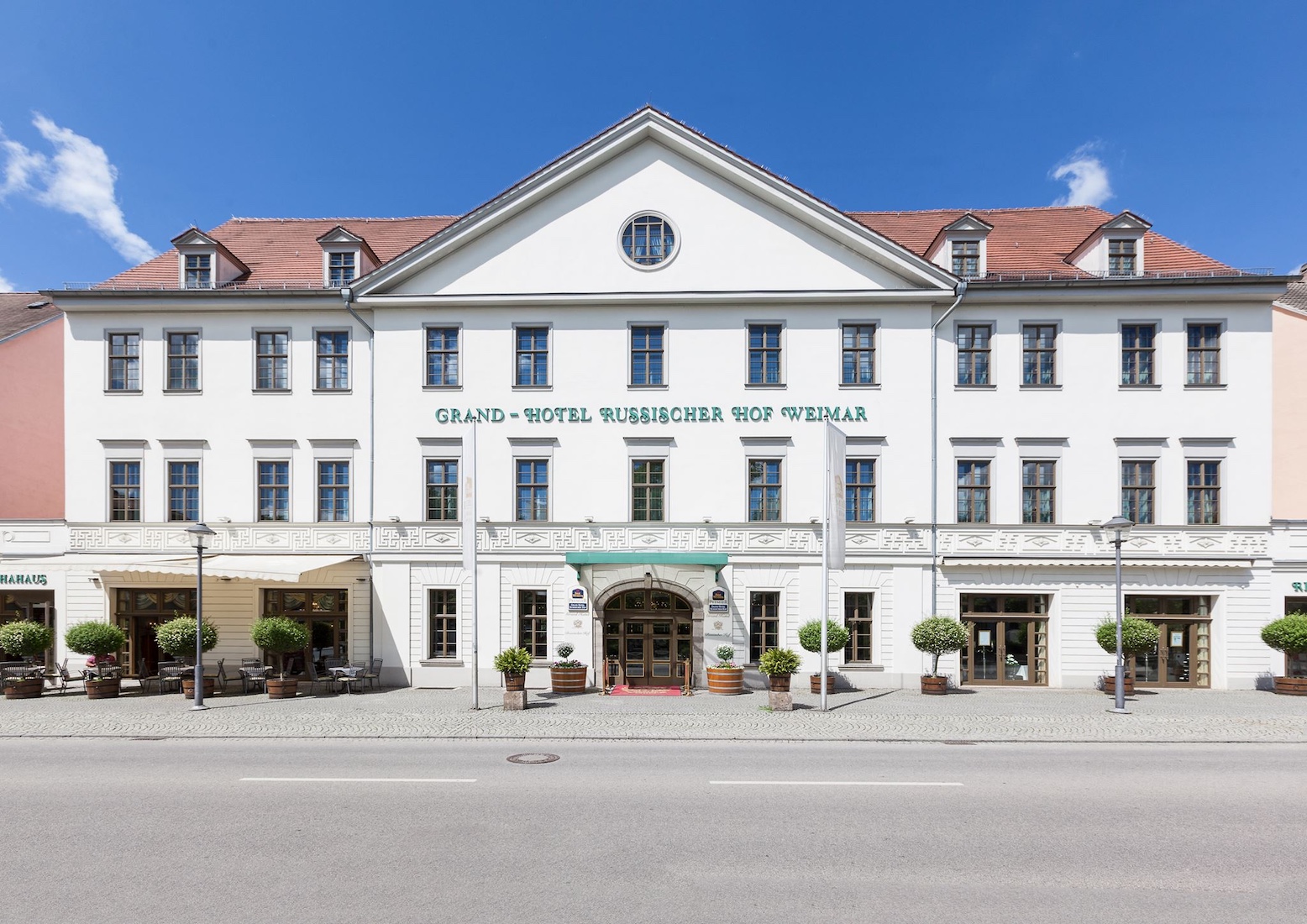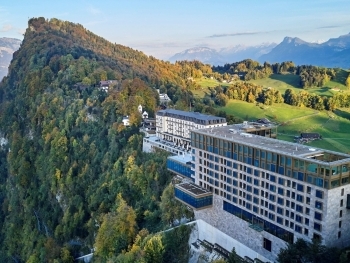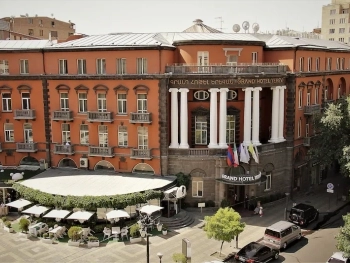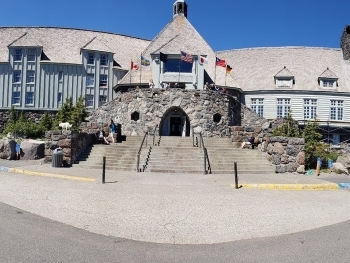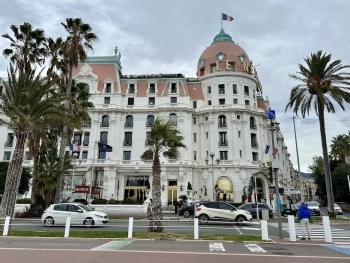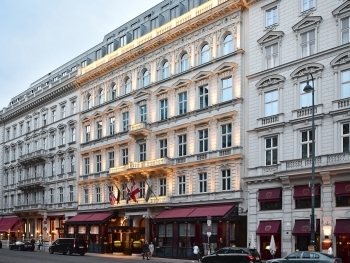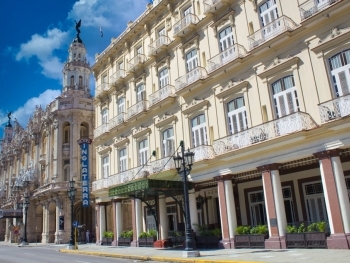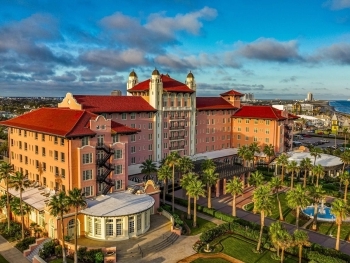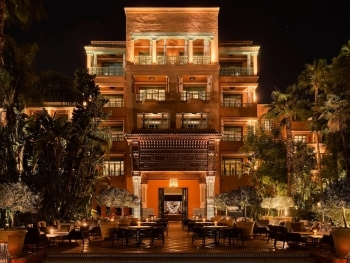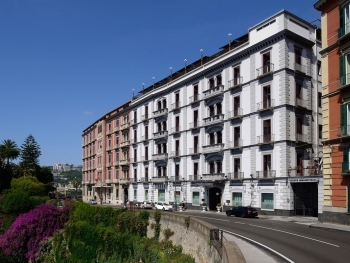The Russischer Hof, also known as the Russian Court Hotel, is a historic hotel located in the heart of Weimar, Germany. Established in the 19th century, this iconic establishment has played a significant role in the cultural and social life of Weimar, a city renowned for its rich history and association with prominent figures in German literature, music, and philosophy.
Historical Background
Early History
The origins of the Russischer Hof trace back to the early 1800s. Weimar, during this period, was experiencing a cultural renaissance, often referred to as the Weimar Classicism era. This was largely due to the presence of literary giants such as Johann Wolfgang von Goethe and Friedrich Schiller, who were closely associated with the city's intellectual and cultural life. The need for a grand hotel became apparent as Weimar began to attract a plethora of artists, scholars, and dignitaries.
The Russischer Hof was established in 1805, originally as a guest house catering to the burgeoning number of visitors to the city. Its name, which translates to "Russian Court," reflects the influence and presence of Russian nobility and aristocracy in Weimar during the 19th century. Over the years, the hotel evolved from a modest guest house into one of the most prestigious hotels in the region.
Architectural Significance
The Russischer Hof is an exemplar of 19th-century architecture, blending elements of neoclassical and traditional German styles. The hotel's façade is characterized by its elegant proportions, ornate detailing, and grand entrance, which together create an air of sophistication and luxury. The interiors are equally impressive, featuring high ceilings, chandeliers, and richly decorated rooms that exude historical charm.
Cultural Importance
Throughout its history, the Russischer Hof has hosted numerous notable guests, including artists, writers, politicians, and members of European royalty. Its guest list reads like a who's who of 19th and 20th-century cultural and political figures. Among the most famous guests were Franz Liszt, Richard Wagner, and Friedrich Nietzsche, each of whom had a profound impact on European cultural history.
The Hotel During the Weimar Republic
The period of the Weimar Republic (1919-1933) was a time of significant change and turbulence in Germany. The Russischer Hof continued to be a central hub of social and cultural activity in Weimar. The hotel maintained its reputation for excellence and became a symbol of the city's enduring cultural heritage despite the political and economic challenges of the era.
During this time, the hotel was a gathering place for intellectuals, artists, and politicians who were shaping the future of Germany. The debates and discussions that took place within its walls reflected the broader societal changes occurring in the country.
World War II and Post-War Era
The impact of World War II on the Russischer Hof was profound. The hotel, like much of Germany, experienced significant hardships during the war years. However, it managed to survive the devastation and continued to operate, providing a semblance of normalcy amidst the chaos. In the immediate post-war period, the Russischer Hof played a crucial role in the rebuilding of Weimar, offering accommodation and a meeting place for those involved in the city's reconstruction efforts.
The DDR Era
With the division of Germany and the establishment of the German Democratic Republic (DDR), Weimar found itself in East Germany. The Russischer Hof, under state control, remained a prominent hotel, albeit with changes reflecting the new political realities. The hotel continued to host important guests, including politicians and international delegations, serving as a venue for diplomatic and cultural exchanges.
Modern Era
Restoration and Renovation
Following the reunification of Germany in 1990, the Russischer Hof underwent extensive restoration and renovation. These efforts aimed to preserve the historical character of the hotel while modernizing its facilities to meet contemporary standards of luxury and comfort. The restoration work was meticulous, ensuring that the architectural integrity and historical significance of the building were maintained.
Present-Day Russischer Hof
Today, the Russischer Hof stands as a testament to Weimar's rich cultural heritage. It continues to operate as a luxury hotel, offering guests a unique blend of historical ambiance and modern amenities. The hotel features elegantly appointed rooms, fine dining options, and a range of services designed to provide a memorable experience for visitors.
The Russischer Hof remains a focal point for cultural and social events in Weimar. It hosts various functions, including conferences, banquets, and cultural performances, contributing to the city's vibrant cultural scene. The hotel's proximity to Weimar's historic landmarks, such as the Goethe House and the Bauhaus Museum, makes it an ideal base for exploring the city's rich cultural offerings.
The Russischer Hof is more than just a hotel; it is a symbol of Weimar's enduring cultural legacy. Its history is intertwined with the city's development and the broader currents of European cultural and political history. From its origins in the early 19th century to its present-day status as a luxury hotel, the Russischer Hof has remained a beacon of elegance, hospitality, and cultural significance. For visitors to Weimar, a stay at the Russischer Hof offers a unique opportunity to experience the city's rich history and vibrant cultural life firsthand.
